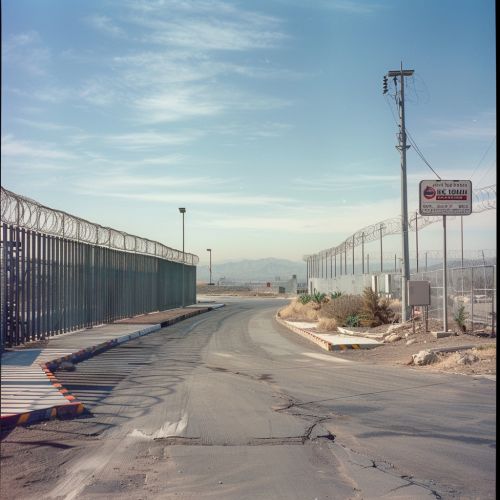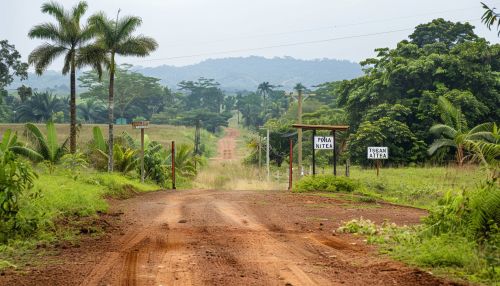Border
Definition
A border is a geographical boundary that separates political territories, such as countries, states, provinces, or municipalities. It is a physical or imaginary line that marks the limits of a particular area. Borders can be demarcated by natural features such as rivers, mountains, or oceans, or by man-made structures like fences, walls, or road markers.


History
The concept of borders has been present since the dawn of civilization. Ancient civilizations, such as the Egyptians and the Romans, established their borders based on natural landmarks or military conquests. These early borders were often fluid and changed frequently due to wars and territorial expansions.
The Treaty of Westphalia in 1648, which ended the Thirty Years' War in Europe, is often considered the beginning of the modern system of international borders. The treaty established the principle of state sovereignty, which includes the right of states to control their own borders.
Types of Borders
Borders can be classified into several types based on their characteristics:
Natural Borders
Natural borders are formed by geographical features such as rivers, mountains, or oceans. These borders are often difficult to cross and can serve as effective barriers against invasion. An example of a natural border is the Himalayas, which separates India from China.
Artificial Borders
Artificial borders are man-made and are usually marked by fences, walls, or other structures. These borders are often established through treaties or agreements between countries. An example of an artificial border is the Berlin Wall, which separated East and West Berlin during the Cold War.
Open and Closed Borders
Open borders allow free movement of people and goods between countries, while closed borders restrict such movement. The Schengen Area in Europe is an example of an open border region, where citizens of member countries can travel freely without passport checks. On the other hand, the border between North and South Korea is one of the most heavily fortified and closed borders in the world.
Border Disputes
Border disputes are disagreements over the location or interpretation of a border between two or more entities. These disputes can arise due to historical, geographical, or political reasons and can often lead to conflicts or wars. Some notable border disputes include the Kashmir conflict between India and Pakistan, and the Israel-Palestine conflict.
Border Management
Border management involves the administration and control of borders by a country's government. This includes immigration and customs controls, border security, and the enforcement of laws and regulations related to cross-border activities. Border management is crucial for maintaining a country's sovereignty, security, and economic interests.
Impact of Borders
Borders have significant impacts on the social, economic, and political aspects of a country. They can affect trade, migration, security, and diplomatic relations between countries. Borders also play a crucial role in shaping a country's identity and sense of nationhood.
